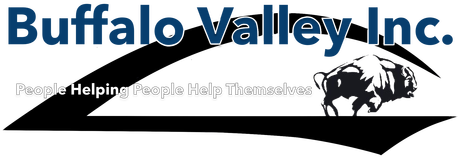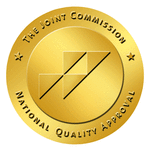As the treatment of addiction moves inexorably toward inclusion in the larger healthcare system, with its standards of evidence-based care, there is also a movement towards the use of peer counselors with “lived experience” with addiction. Are peer counselors able to connect with and help persons struggling with addiction in a unique way? Do the outcomes achieved in employing peers suggest that they should be more widely used, and supported by public funding? Melissa Killeen opens the conversation and highlights a case in which peer counseling played an integral role…Richard Juman
A peer recovery support specialist has many job titles across the United States and around the world. They may be called certified recovery support practitioners, recovery advocates, peer mentors or recovery coaches. They tend to be employed at recovery community support centers, at hospitals, behavioral health agencies or addiction treatment centers. The peer recovery support specialist may be working with substance misusers, traumatic brain injury clients, behavioral health clients or clients that identify with all of these diagnoses. Certified peer recovery support specialists are generally employed by the facilities at an hourly rate for their services; for the client, peer recovery support services are typically free. In this article, I will focus on the peer recovery support specialists working in the addiction field.
Recovery community support centers, financed with state and federal funding, some with funding from churches or individuals, are slowly taking hold and becoming more prevalent. The recovery advocacy organization Faces & Voices of Recovery, developed the Association of Recovery Community Organizations that unites and supports a growing membership of over 100 recovery community support organizations, although there are many organizations which have not yet become members of ARCO. For example, in my neck of the woods, there are currently 12 recovery community support organizations in Pennsylvania and 10 in New Jersey. Recovery community support centers can provide computer training, job interviewing skills training, resume writing, legal assistance, parenting skills training, social services linkages, 12-step meetings and even haircuts! It is important to highlight that these are non-clinical settings. Treatment is not provided—these are healthy places where people with current or past histories of addiction can go as an alternative to hanging out at a bar or on a street corner. Recent research completed by Chyrell Bellamy, MSW, PhD and Michael Rowe, PhD, both assistant professors at Yale University, concluded that working with peers in a recovery community environment may reduce alcohol use, drug use, and criminal justice charges for at-risk populations.
In my view, the most important service that a recovery community support center offers is the assignment of a peer recovery support specialist or recovery coach to work with each client that comes to the center. At the outset, the peer recovery support specialist meets the client and sets up a schedule upon which the client and peer will meet. The format and structure varies widely, with some relationships based on daily phone calls and others on weekly face-to-face visits. The actual length of a coaching engagement will also vary. The McShin Foundation suggests that, as at the community recovery support centers run by the Virginia-based foundation, a 90-day limit is placed on the coaching assignment. However, other organizations, like the Hartford-based Connecticut Community for Addiction Recovery, does not place an arbitrary limit on the length of coaching time. Instead, it recommends that standards of goal achievement, like drafting a recovery plan, a relapse prevention plan and/or attaining sobriety goals, be used to determine the length of engagement.
What do peer recovery support specialists actually do for their clients? Here is one example:
In 2013, I helped create the first community recovery center in southern New Jersey, one of only a handful of recovery centers in New Jersey at the time. Heather Ogden-Busch was one of the first people we hired at the Living Proof Recovery Support Center in Voorhees, NJ. At the time, because she had many years of sobriety and experience in sponsorship, she naturally fell into the role of a peer recovery support specialist, or recovery coach. On Heather’s first day at the recovery support center she received a call from a member of her 12-step group. This member relayed the story about another member from the meeting, Beth (not her real name), who had relapsed on heroin. Beth was living in a trailer with her boyfriend, who was also addicted to heroin, and she was not doing well. Beth wanted to stop using. Heather called her immediately.
At the time, Heather was aware that there was some really powerful heroin circulating in the Philadelphia/Camden region. Several young people had overdosed recently, including one of Heather’s sponsees. She relayed this information to Beth, and asked Beth what she wanted to do. Beth said she wanted to get out of her boyfriend’s trailer and go into rehab. She had no job, no money and no connection with her parents, with no possibility of financing a rehab stay. Heather and her colleagues at the Living Proof Recovery Center jumped on the phones to find a detox and a treatment center that would have an opening for Beth.
Within one day, Heather had scheduled an intake appointment for Beth at a detox hospital in New Jersey. Beth would also have a bed reserved for her at a Christian-based treatment center in Brooklyn, NY, if she successfully completed detox. Luckily, Heather knew of another treatment center, also faith-based, in Chicago, with the financing available for the treatment as well as funding for the airplane flight.
Beth was not particularly religious, but knew she needed treatment and agreed to go to detox then to treatment in Brooklyn. Over the weekend, Heather and Beth met together at the recovery center, called the detox hospital and went through the intake process. The same procedure was necessary for the Brooklyn treatment center. Heather and Beth made those calls together. By Monday of the next week, two days after Beth consented to go to detox, Heather had arranged for a sober friend to drive Beth to the northern New Jersey detox hospital. She also had arranged for the same person to drive Beth from the detox to Brooklyn when Beth was discharged.
One week passed, and Beth was being discharged from detox. Unfortunately, the Brooklyn treatment center did not have an immediately available bed, but Beth was next in line for a bed as soon as it was available, in a few days. Beth had to return to her boyfriend’s trailer to wait for the call from the treatment center. Beth did not have a phone, so it was Heather that would field the call from the treatment center. Beth had at least three days to wait and hopefully, remain clean. Heather pulled in all of the support she could muster. Beth had escorts to every NA and AA meeting in the area. Members of the 12-step community drove Beth to Suboxone maintenance appointments. Every night, Heather and Beth talked. Every morning Heather called the treatment center to find out if the bed was available. By Wednesday morning, Beth and Heather were driving up the NJ Turnpike to Brooklyn, and Beth was still clean.
The story doesn’t end there, because the job of a peer recovery support specialist is as important after the client comes out of treatment. Beth was in Brooklyn for 28 days. While Beth was working on her sobriety, Heather was lining up a room at an Oxford House, miles away from the trailer and the addicted boyfriend. Within one day after being discharged from the Brooklyn treatment center, Beth was in an Oxford House, had a temporary sponsor and was enrolled in an intensive outpatient program. Her parents were so proud of Beth’s achievements they had paid for the first two month’s rent at the Oxford House.
Heather remained Beth’s peer recovery support specialist and required Beth to come to the recovery center every day to volunteer. Beth answered the phone, made copies, attended 12-step meetings, and learned about co-occurring disorders. She participated in a resume-writing workshop and a financial planning workshop. Beth got a job as a waitress at a local family-style restaurant that did not serve alcohol and for the first time she opened her own checking account. By her third month at Oxford House, she was able to pay her own rent.
Heather guided Beth to enroll in a co-occurring program associated with her outpatient program. Beth now sees a therapist every week, and a psychiatrist monthly for her psychiatric disorders; because of her low income these services and her Suboxone treatment are free. She came to understand that her drug and alcohol usage was a form of self-medicating her mental illness. Nine months later, Beth remains an active participant in a local recovery support center and she is sober. Every month, her Suboxone dosage is reduced and she will celebrate one year clean from heroin in 60 days. Her goal is to be free from Suboxone and after one year of total sobriety, she can begin the 156-hour training to be a certified recovery support practitioner (CRSP), which is the peer recovery support specialist certification in the state of NJ (www.certboard.org).
Melissa Killeen is a recovery coach, author of the first book on Recovery Coaching:Recovery Coaching a Guide to Coaching People in Recovery from Addictions and the recipient of the 2015 Vernon Johnson Award from the Faces & Voices of Recovery.


 RSS Feed
RSS Feed
